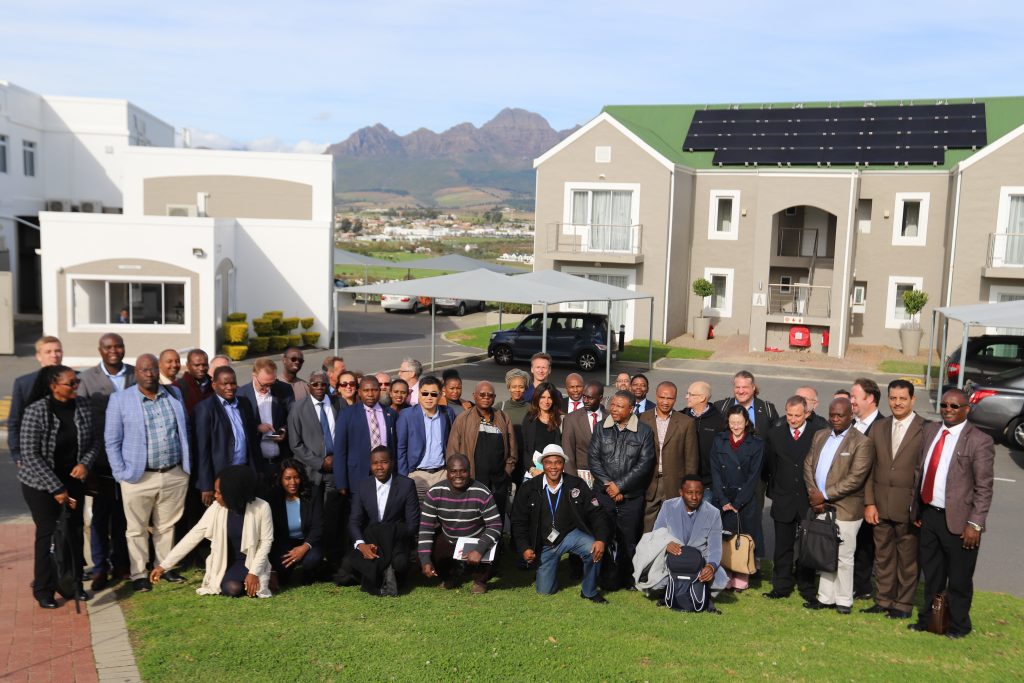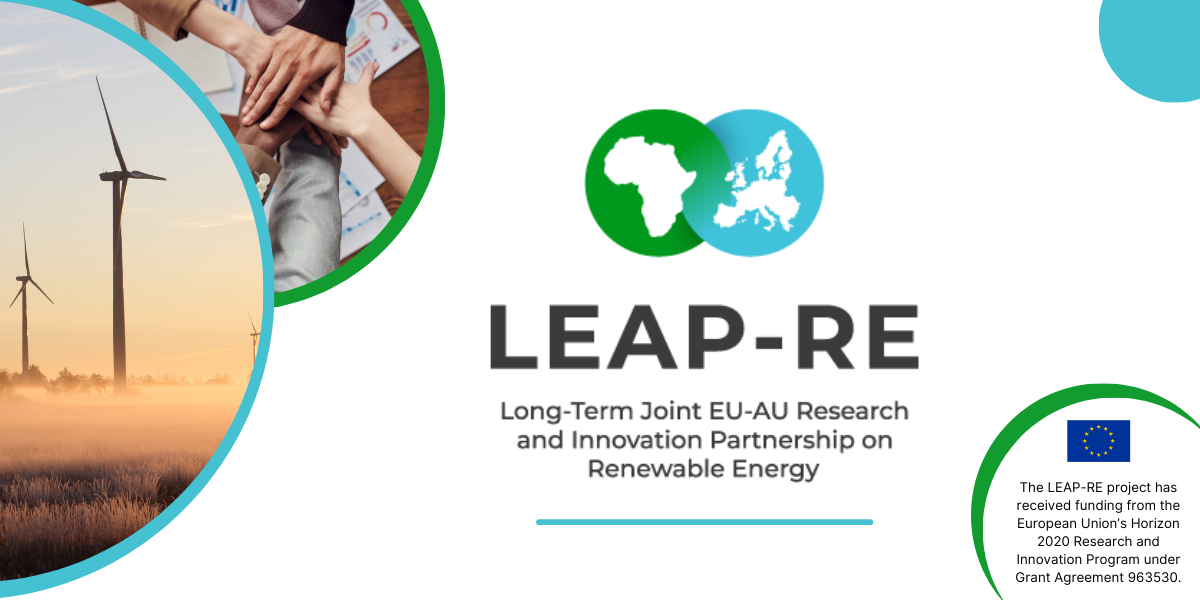Transfer
Africa: Developing partnerships for renewable energies
Fraunhofer IEG takes part in the Long-Term Joint European Union - African Union Research and Innovation Partnership on Renewable Energy (LEAP-RE Project), funded under the European Union's Horizon 2020 program. Fraunhofer IEG will lead capacity building and transfer knowledge actions including training and research mobility in two projects starting this spring. The topics are to create a geothermal atlas for Africa and to prepare four geothermal village demonstration projects. The overarching goal is long-term cooperation, and the development of joint sustainable energy projects by partners in Africa and Europe.


»Our ambition is to establish a long-lasting research and innovation partnership on renewable energy«, says Isabella Nardini, the local LEAP-RE-coordinator at Fraunhofer IEG. Africa is expected to become increasingly energy demanding. Indeed, today with one fifth of the world’s population, Africa accounts for only 6% of global energy demand and little more than 3% of electricity demand. Africa will investigate renewable energy and energy efficiency alternatives over the long-term to support the claimed decoupling of growth, pollution, and greenhouse gases emissions. The energy strategies, technological leapfrogging, and native innovations that the continent would select could greatly impact access to energy and domestic growth as well as development and environmental preservation. »Africa needs a sustainable, reliable, affordable and clean energy system to boost locaI socio-economic development.«
In addition to the participation in the geoscience and engineering activities, Fraunhofer IEG will lead capacity building and transfer knowledge actions including training and research mobility in the two geothermal projects. These actions aim to enhance the knowledge for local communities, academia, industry and policy makers in the geothermal energy sector and to increase public awareness and acceptance. Capacity building and transfer knowledge will build the base for a sustainable socio-economical development in Africa and will be carried out synergically with the all other projects on the different renewables of the LEAP RE project.
The project »Geothermal Atlas for Africa« will enable easy access to relevant information on geothermal resources for scientists, project developers, policy & decision makers, and investors. It will map the location of low to high enthalpy geothermal resources for the development of African electricity production, plus a range of direct heat and cold use applications. For this purpose it will gather geoscientific information, technological information and social aspects on local, regional, and continental level. The current focus is mainly on high-temperature resources i.e. the East African Rift, despite the fact that low to medium temperature systems in other regions could provide sustainable heat and power sources for industrial purposes, tourism, and others.
The second project is called »Geothermal Village« and aims to introduce geothermal-based stand-alone electric and thermal energy systems to off-grid African communities and to provide template case-studies on adapting the energy systems to community needs. In this project European and African entities will jointly research and develop the conceptual, engineering and physical tools to support community-based initiatives and develop local capabilities, working through schools, universities, public and private entities, cooperatives and NGOs. They work together to identify four suitable locations respectably in the four participating countries Rwanda, Ethiopia, Kenya, and Djibouti, which are located at the geological structure of the East African Rift System. The project is identifying sites, characterizing them, and arriving at a generic energy-system plan. Then studies feasibility and design. The third step, not in this project, would be the actual construction of demonstrator systems, which the consortium aims to obtain funding during the two-year project.
About LEAP-RE:
The Long-term Europe-Africa Partnership on Renewable Energy (LEAP-RE) programme co-funded by the European Union (EU) under Horizon 2020 and the African Union (AU) aims to increase the use of renewable energy via a well-balanced set of research, demonstration, and technology transfer projects in both continents. This programme is led by a consortium of 83 partners from European and African countries. The whole budget of the programme is around €32 million, including €15 million from the EU. LEAP-RE establishes and jointly implements research, innovation, and capacity-building activities. The programme opted for a large-scale, inclusive consortium of 96 partners from 34 countries and 2 international organisations, to ensure a broad thematic, geographical and stakeholder coverage, and demonstrate the feasibility of the collaboration and build trust for a long-term partnership addressing the post-2025 period. The LEAP-RE programme seeks to create a long-term partnership of African and European stakeholders on four levels: government (programme owners and funding agencies), research and academia, private sector, and civil society. The Impact will be sought by creating a framework, methodology, and cooperation model. LEAP-RE is based on the PREparing for a Long-Term Joint EU-AU Research and Innovation Partnership on Renewable Energy (PRE-LEAP-RE) project. This preparatory work enabled the formulation of a Research & Innovation (R&I) and Human and Institutional Capacity Building agenda on Renewable Energy (RE).
Further information about the consortium: https://www.leap-re.eu/pillar-2/